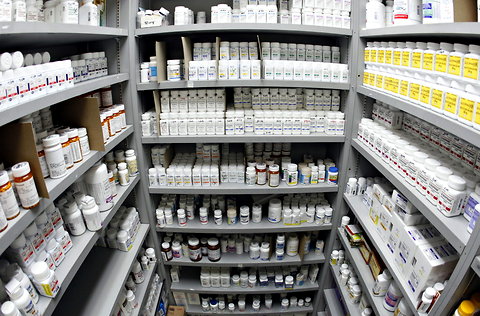 ReutersPills line the shelves of a pharmacy in Los Angeles.
ReutersPills line the shelves of a pharmacy in Los Angeles.
While health insurance premiums may be increasing more modestly than they were a year or two ago, consumers who take multiple drugs but lack prescription drug coverage are nearing a “crisis point” because they can’t afford to pay for them, a new report finds.
Consumer Reports’ annual prescription drug poll finds that more Americans who lack a drug benefit are failing to fill prescriptions because of cost. Almost half of Americans (45 percent) under 65 who lack drug coverage failed to fill a prescription because of cost, the report found — up from 27 percent last year.
Those without drug coverage also reported being more likely to cut back on other costs, including groceries, to pay for medications.
Nearly half (46 percent) of American adults take prescription drugs; the average is 4.1 prescriptions. A fourth of those ages 18 to 39 regularly take two prescription drugs, the report noted, suggesting that a reliance on multiple drugs is no longer confined to older Americans.
The poll was conducted in May and June by the Consumer Reports National Research Center using a telephone survey of a total of 1,158 interviews with adults 18 years of age and older. The margin of sampling error is plus or minus 3 percentage points.
Consumer Reports suggests saving on drug costs by using $4 generic versions available at many chain drug stores, switching to generics if you haven’t already and even splitting pills “where appropriate.”
Have you skipped a prescription in the last year due to costs?
Article source: http://bucks.blogs.nytimes.com/2012/09/13/many-struggling-with-prescription-drug-costs/?partner=rss&emc=rss
